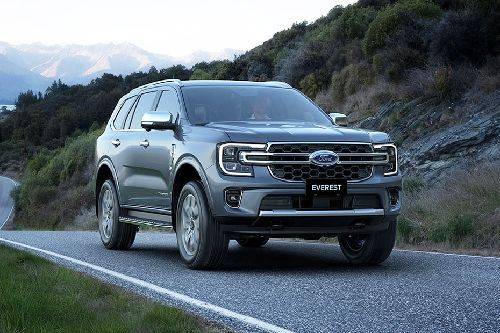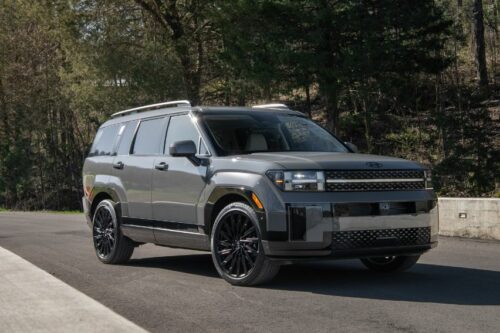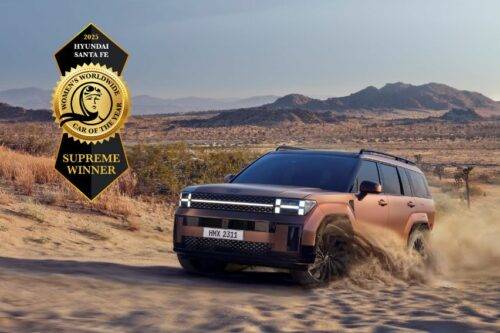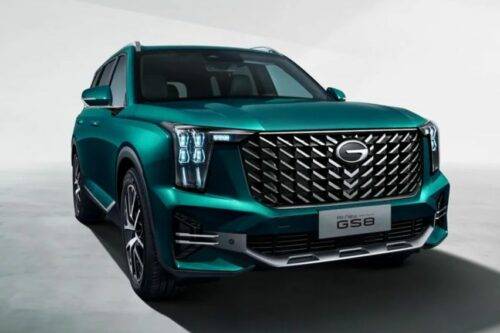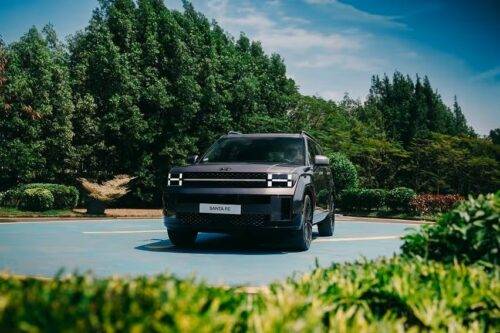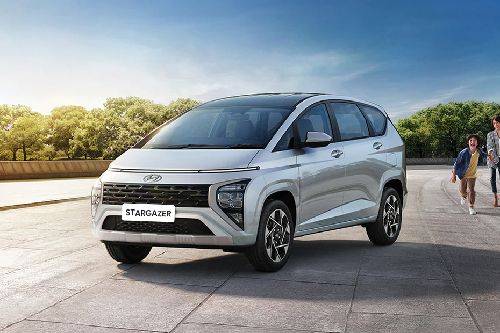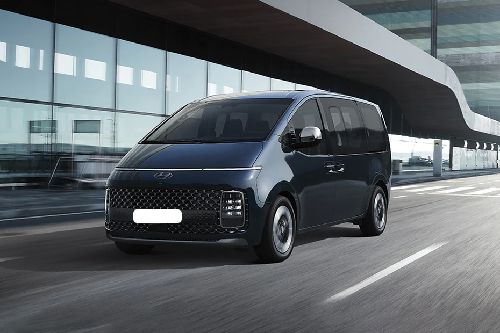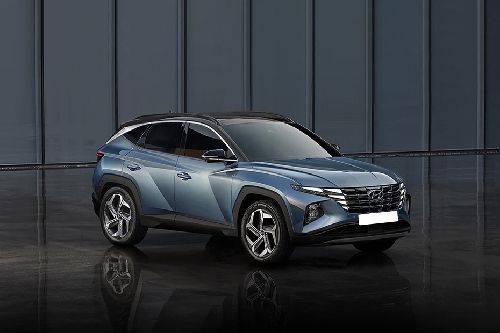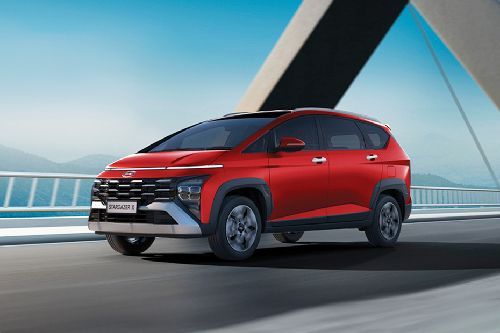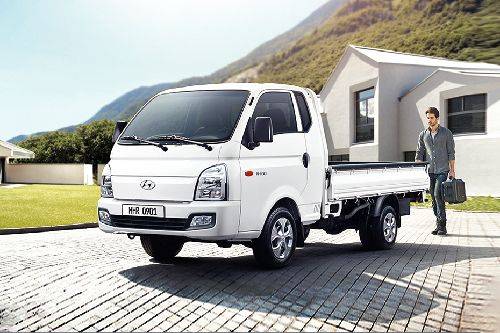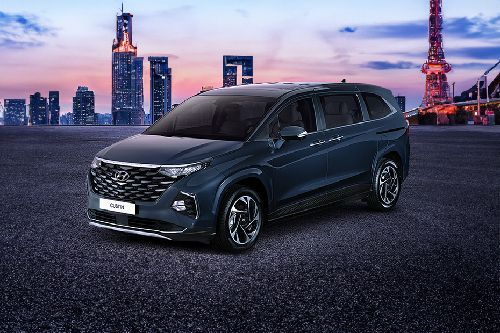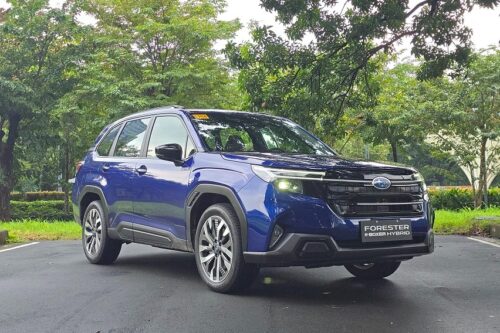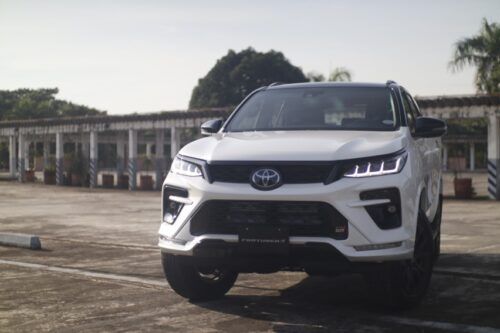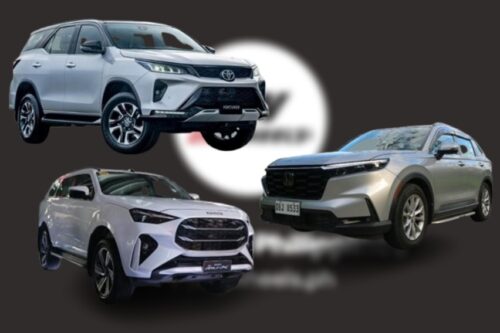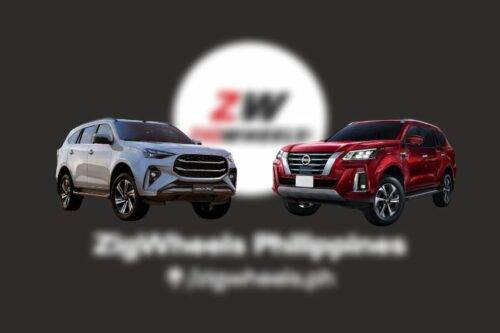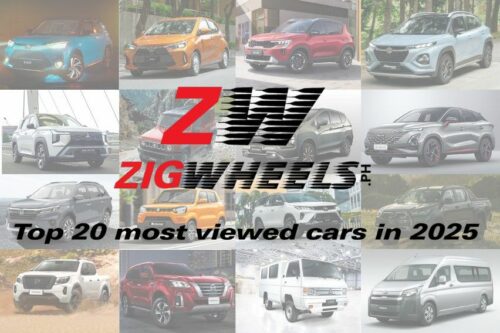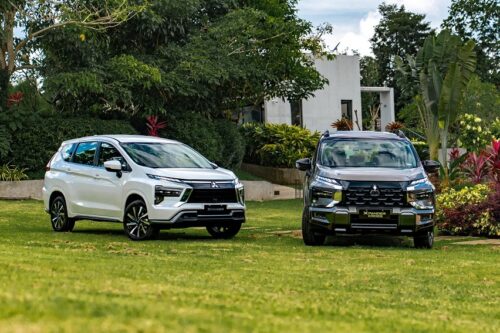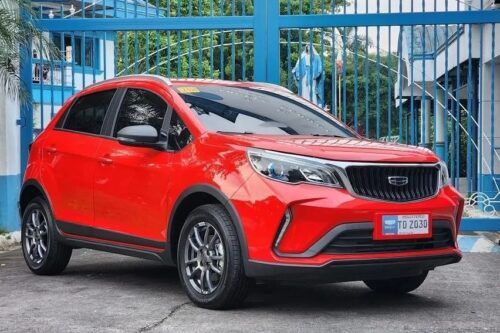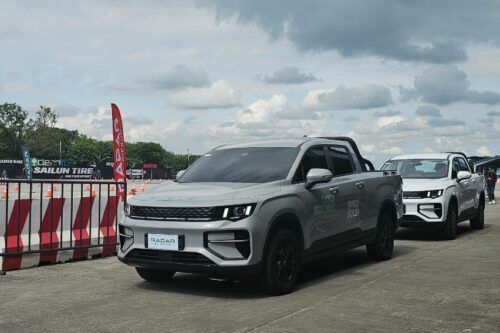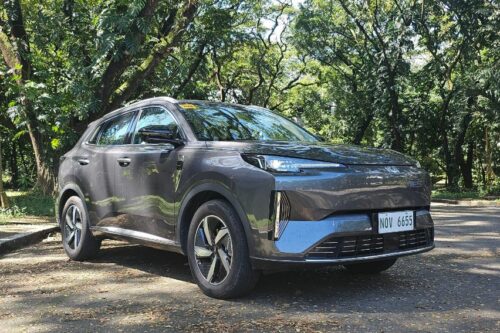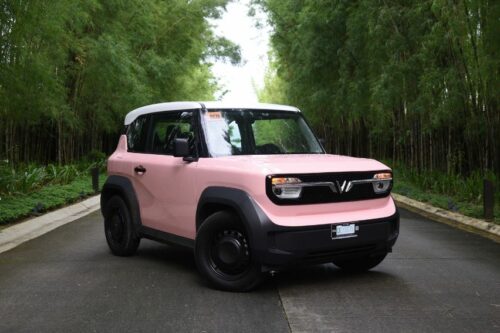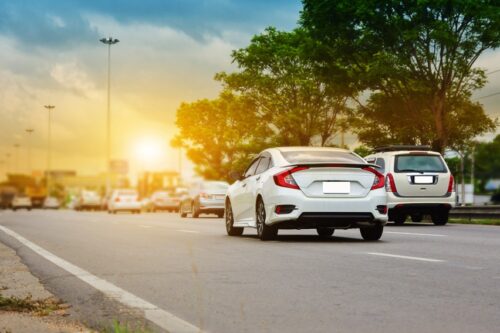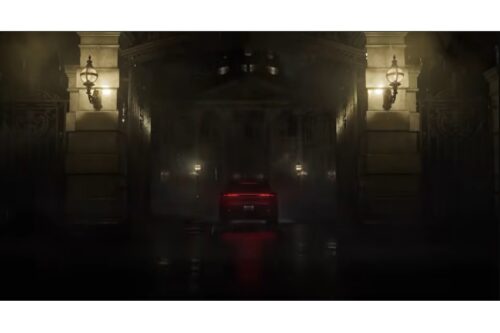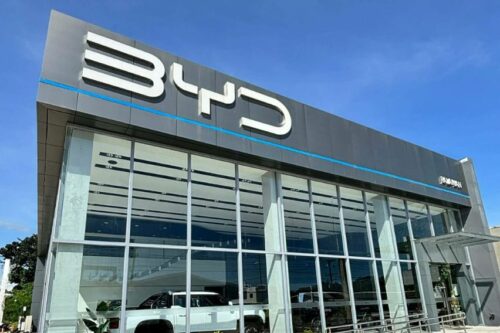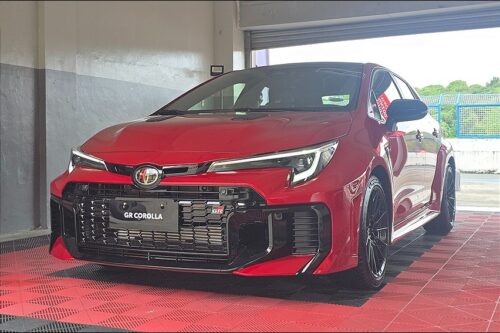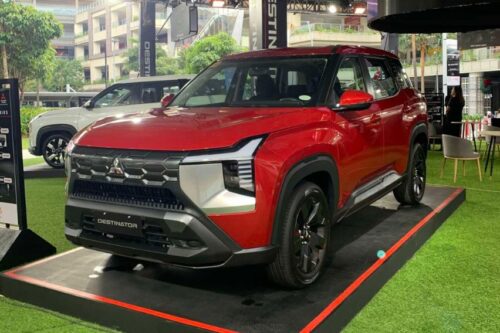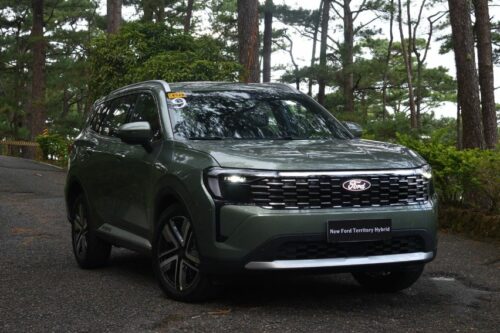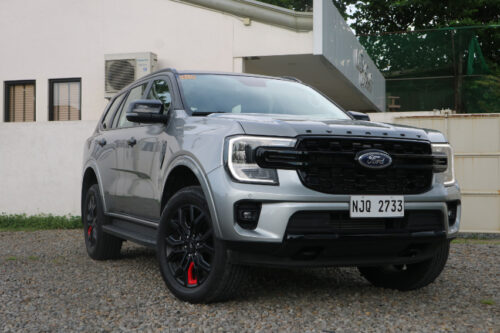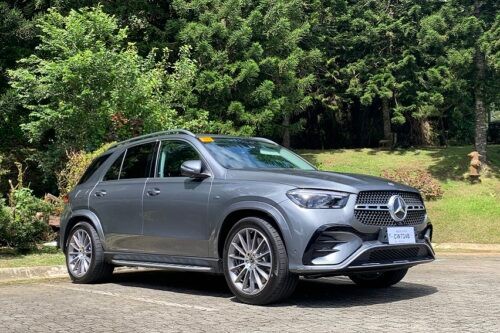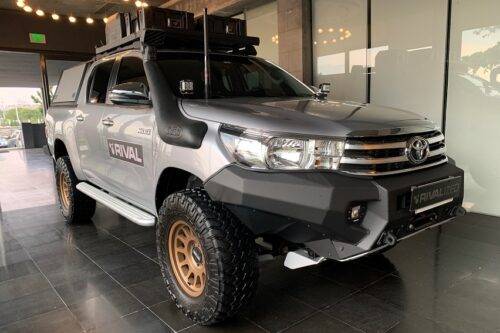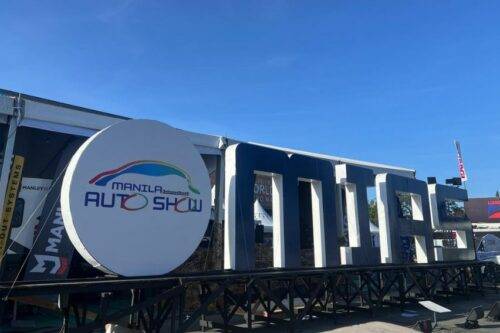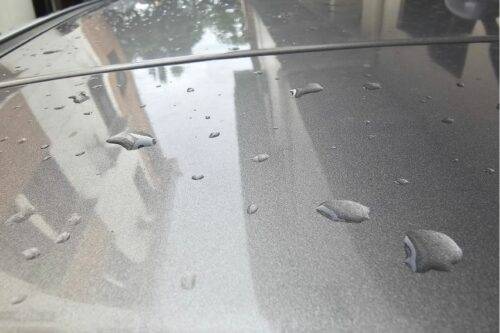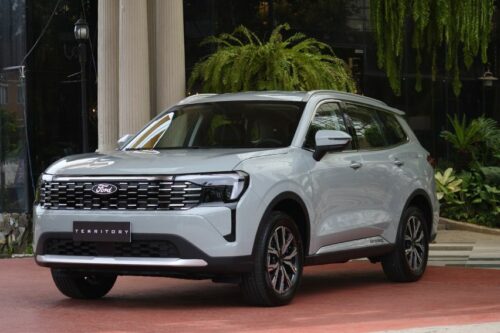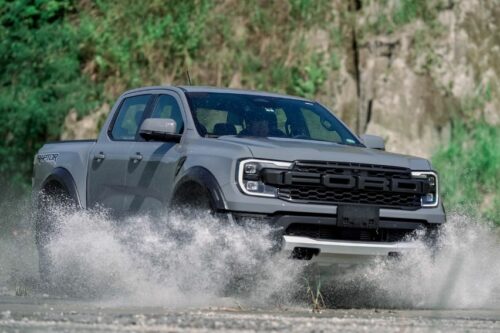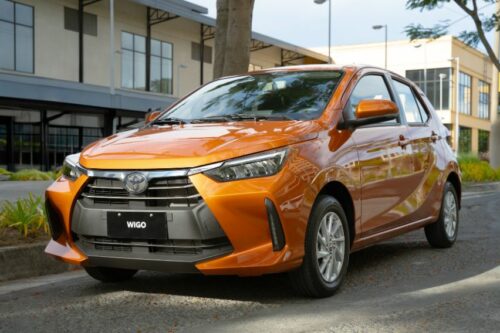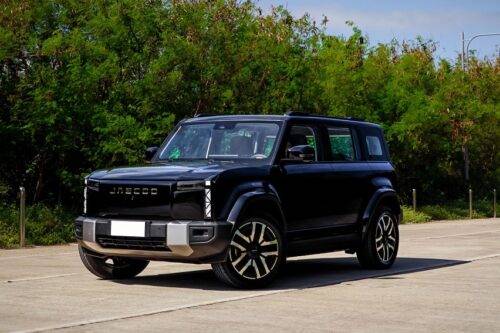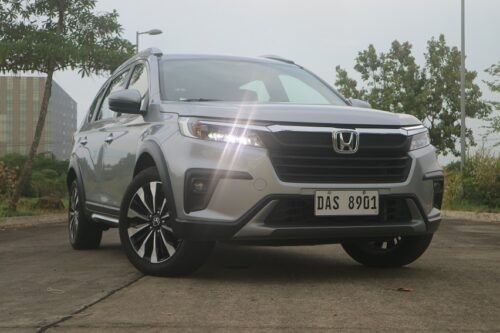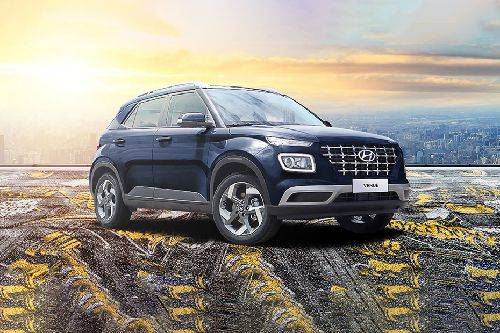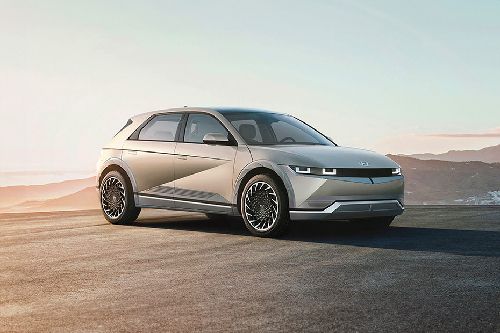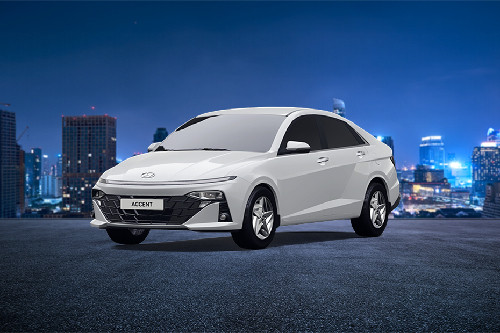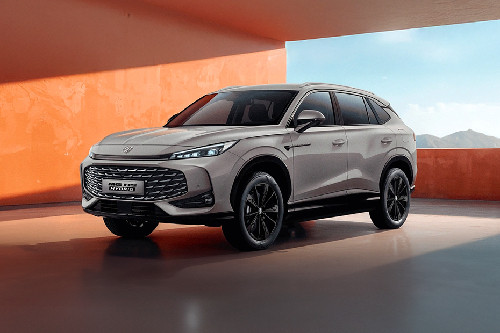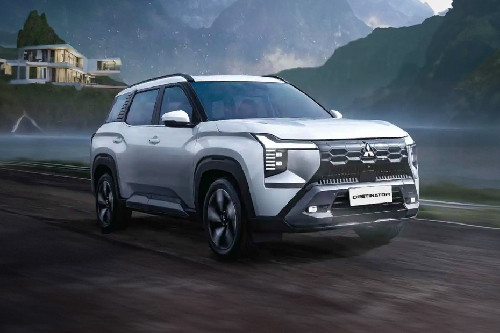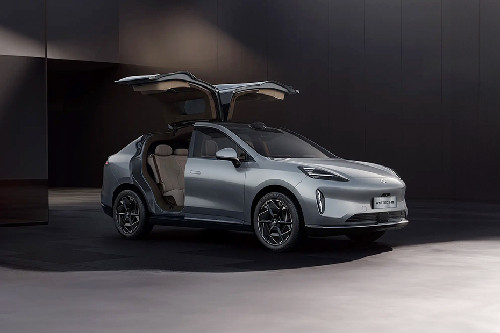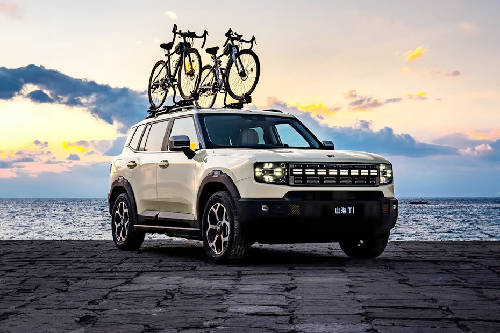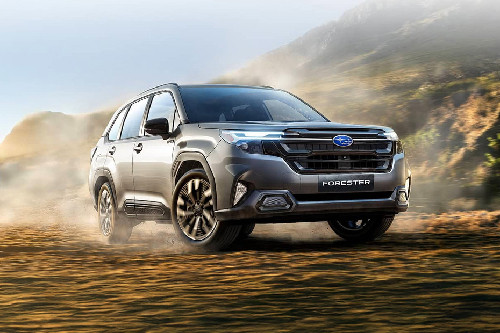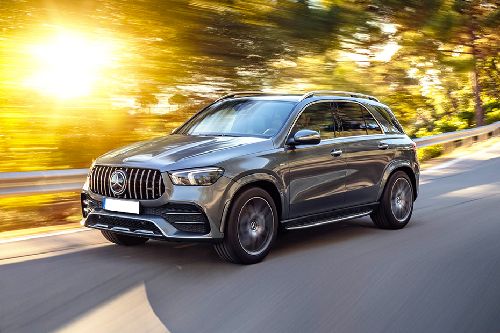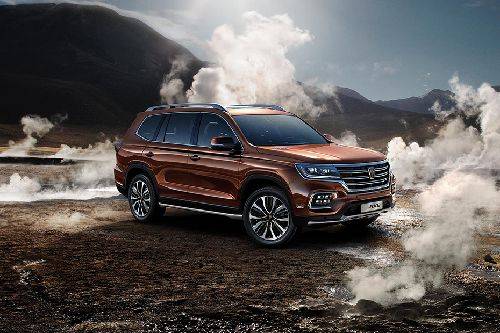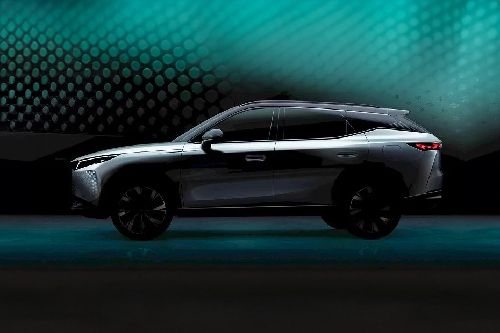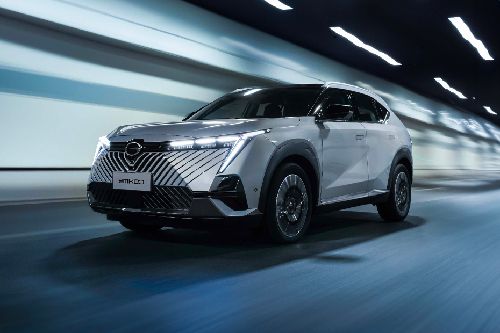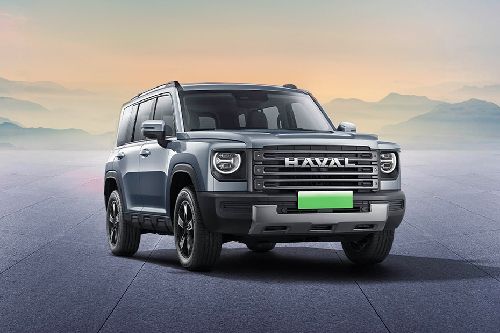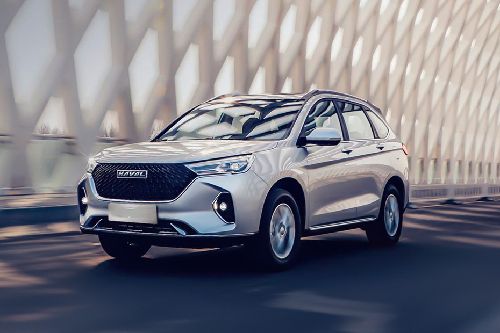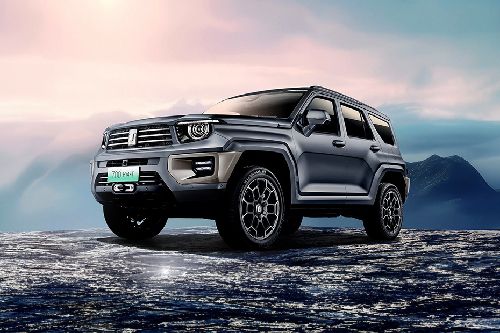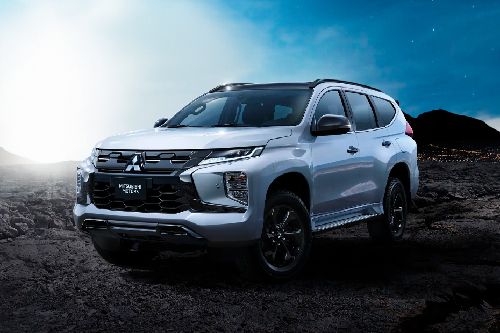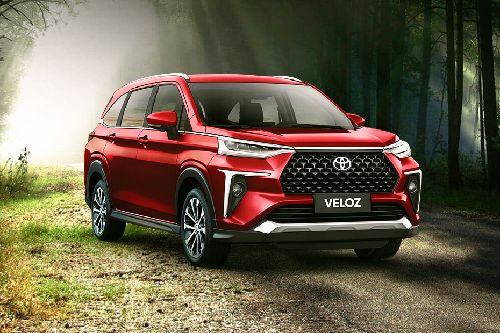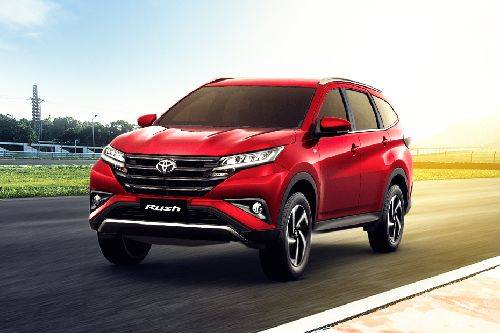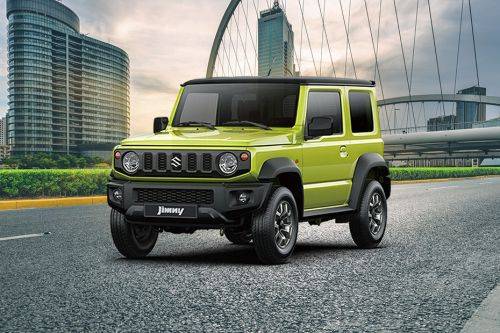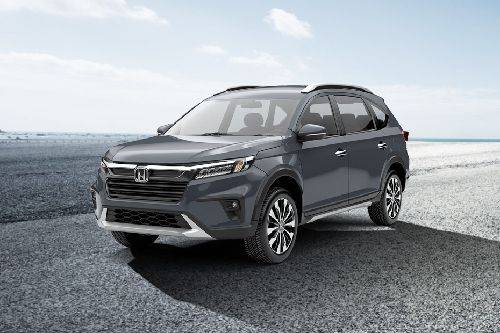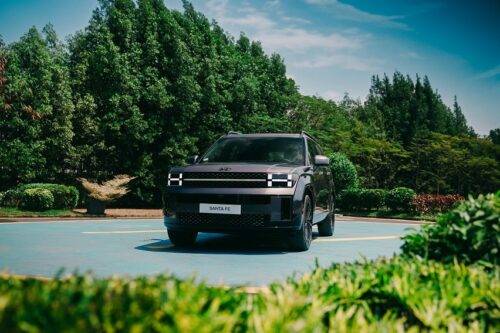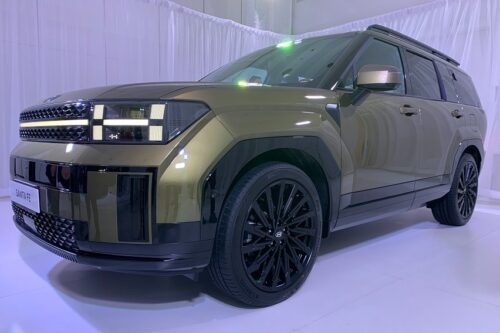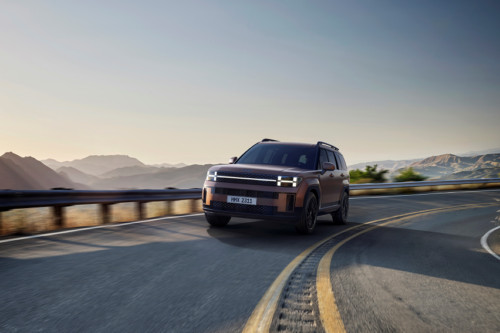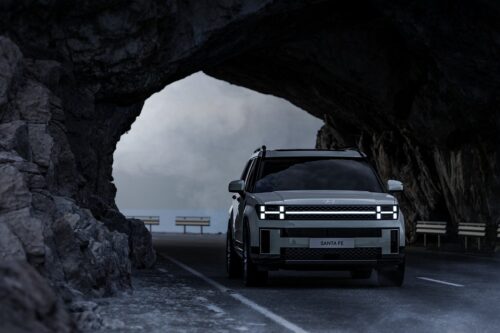Midsize SUV battle: Hyundai Santa Fe vs. Ford Everest
Both SUVs offer luxurious, modern looks coupled with raw, rugged power
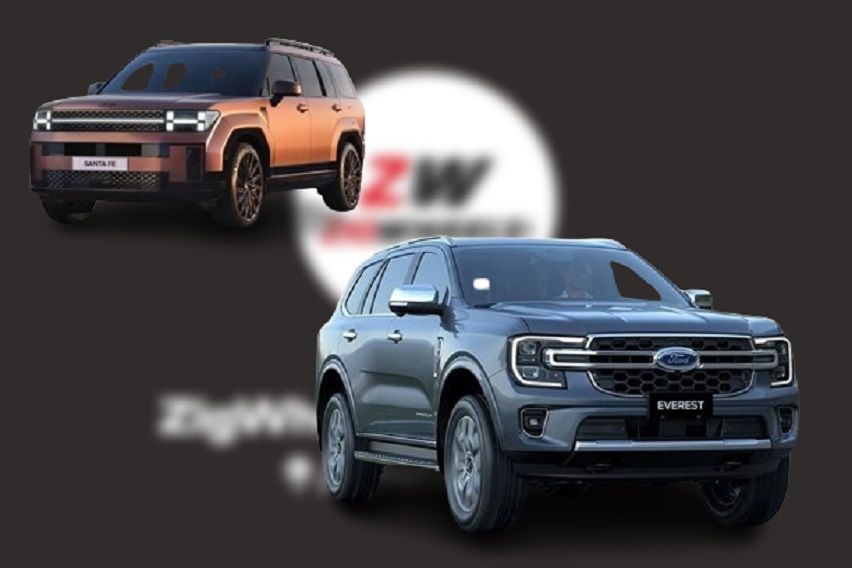
The fifth-generation Hyundai Santa Fe is the latest competitor in the local midsize sport-utility vehicle category.
KEY TAKEAWAYS
What is the price range of the Hyundai Santa Fe?
The Hyundai Santa Fe is priced from P2.410 million to P3.1 million.How much does the Ford Everest cost?
The Ford Everest has a price tag that ranges from P1.799 million to P2.525 million.Launched not too long ago, the latest iteration of the nameplate is touted as a refined ride with a dash of ruggedness on the side. Obliged to give it a warm welcome is the segment staple Ford Everest, which is also both couth and robust.
Interested to see which of the two is the ideal SUV for you? Join us as we pit the Hyundai Santa Fe and the Ford Everest in a toe to toe battle.
Weigh-in
The Hyundai Santa Fe’s range-topping variant measures 4,830 millimeters (mm) long, 1,900mm wide, and 1,780mm tall. Its wheelbase is 2,815mm and its ground clearance is about 177mm.
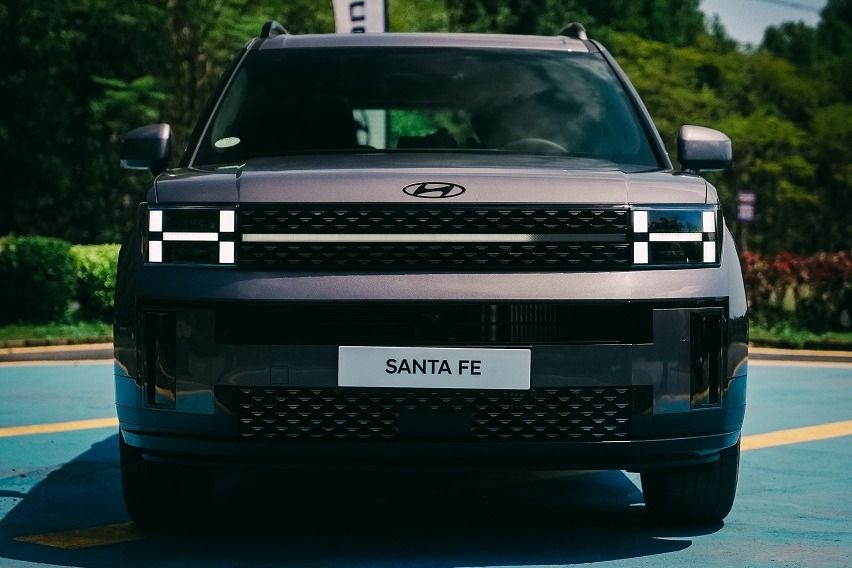
On the other hand, the Ford Everest has an overall length of 4,914mm, an overall width of 1,923mm, and an overall height of 1,842mm. It has a wheelbase of 2,900mm and clears the ground by 227mm.
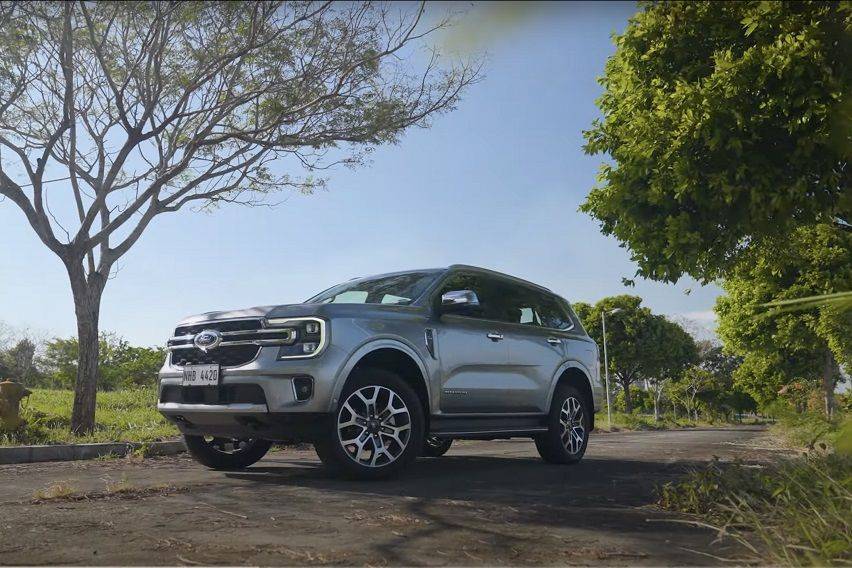
By the numbers, the Ford Everest is slightly larger than the Hyundai Santa Fe. It also has a longer wheelbase and a higher ground clearance.
Exterior
The Hyundai Santa Fe has a body exterior, emphasized by various appointments that are also squarish in size.
At the fore, it gets a wide grille with a long light bar — aka center garnish lamp — in the middle. To each of its sides is an H-shaped wide projection LED headlamp with low beam assist. Within the same cluster of lights are its daytime running lamps.
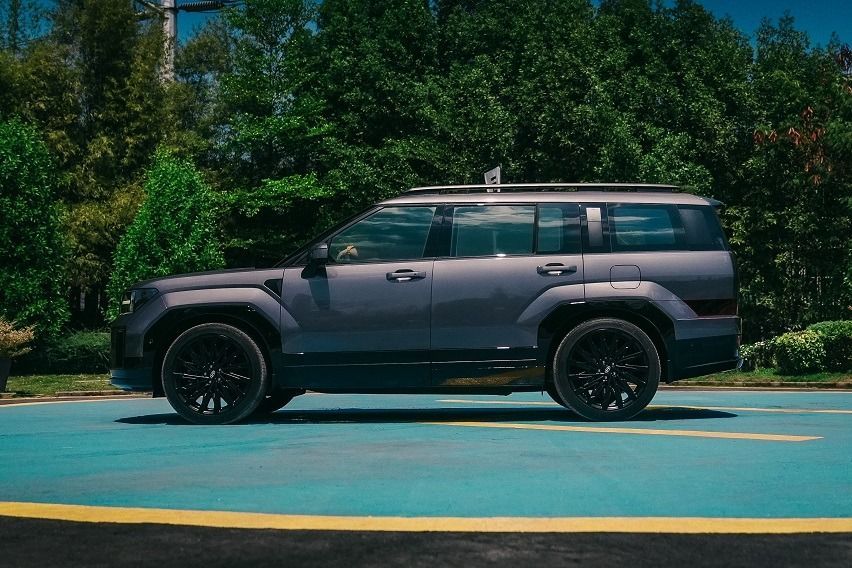
The lower front grille shares the same latticework as the one above and has yet another H-shaped element.
On its flanks are blacked-out fender garnishes, side mirror trims, wheel arches, door claddings, pillars, and roof rails. The wheels — which come in either 20 or 21 inches — can also be in solid black or two-tone.
The rear end of the Hyundai Santa Fe boasts a large power tailgate, rear fog lamps, and LED rear combination lamps with an H-shaped design. The “SANTA FE” script and the Hyundai badge are also in black.
While the overall design of the Hyundai Santa Fe’s exterior is modern and minimal, the Ford Everest delivers some level of sophistication with its somewhat luxurious appointments.
Similarly heavyset, the top-of-the-line Ford Everest also flaunts a chunky body but with a few touches of sexy contours. Its front end comes with a large honeycomb grille bearing the Blue Oval badge with chrome appliques all over. The grille is bordered by C-shaped daytime running lights with Matrix LED headlamps, which sort of have become a hallmark in current-gen Everest and Ranger models.
Below its fascia are fog lamps, likewise surrounded by chrome accents.
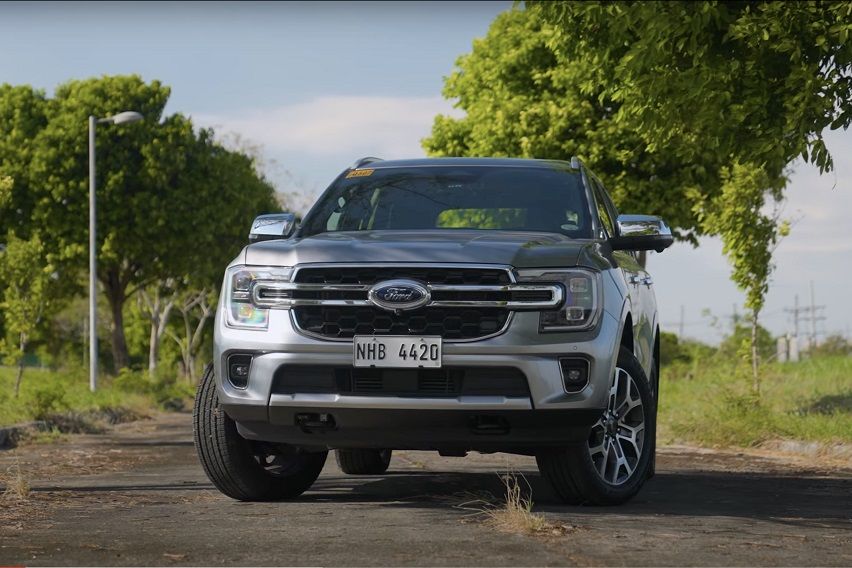
The flanks of the Ford Everest boasts chrome fender trims, chrome door handles, chrome side mirrors, chrome window surrounds, chrome roof rails, and wide step boards — also with chrome elements. It has 20-inch alloy wheels with a silver finish.
At the back, the Ford Everest has a decent roof spoiler with a third brake lamp, a large rear glass, a pair of LED taillamps and rear fog lamps, a chrome “EVEREST” script, reflectors on each side, and a black rear bumper.
Overall the two SUVs are neck and neck in this round as they both offer luxurious looks that will also look at home when driven outside the metro. On that note, we call this round a tie.
Interior
Inside the Hyundai Santa Fe are posh Nappa leather seats, a leather-wrapped multi-functional steering wheel with paddle shifters, a leather front center armrest, and door trims that get treated with a similar hide.
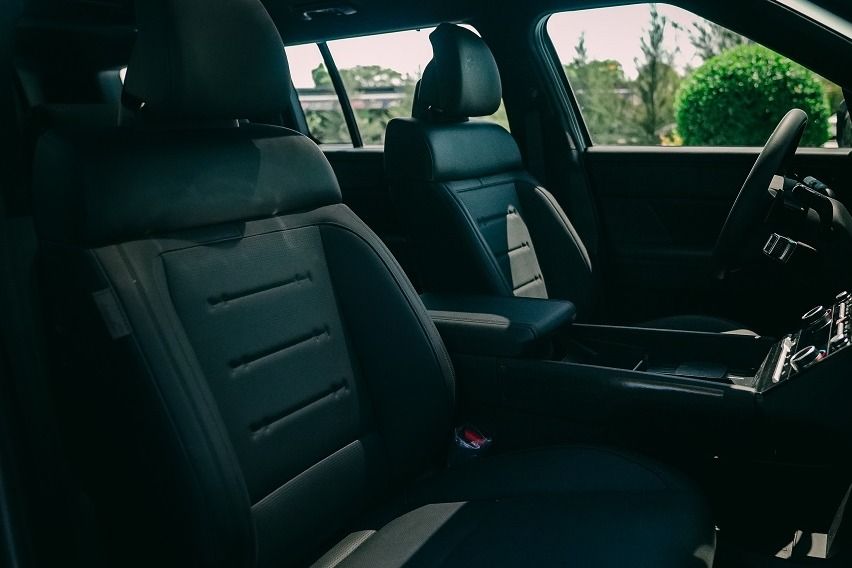
Past the aforementioned steering wheel is a 12.3-inch thin-film transistor LCD instrument cluster sitting alongside a 12.3-inch touchscreen infotainment display with Apple CarPlay and Android Auto.
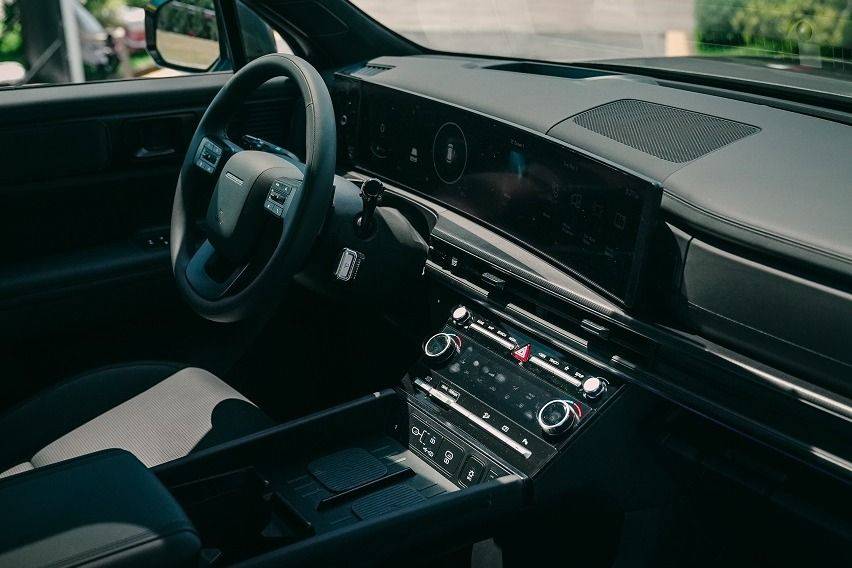
Its center console looks clean with just a mix of haptic controls and tactile knobs. The gear shifter, not to get drivers confused, is located just right below the steering wheel.
Other notable features of the Hyundai Santa Fe include its head-up display, dual-zone automatic air conditioning system, bi-directional console box, and dual wireless chargers.
Not to be outdone, the Ford Everest also offers some upmarket amenities inside its cabin.
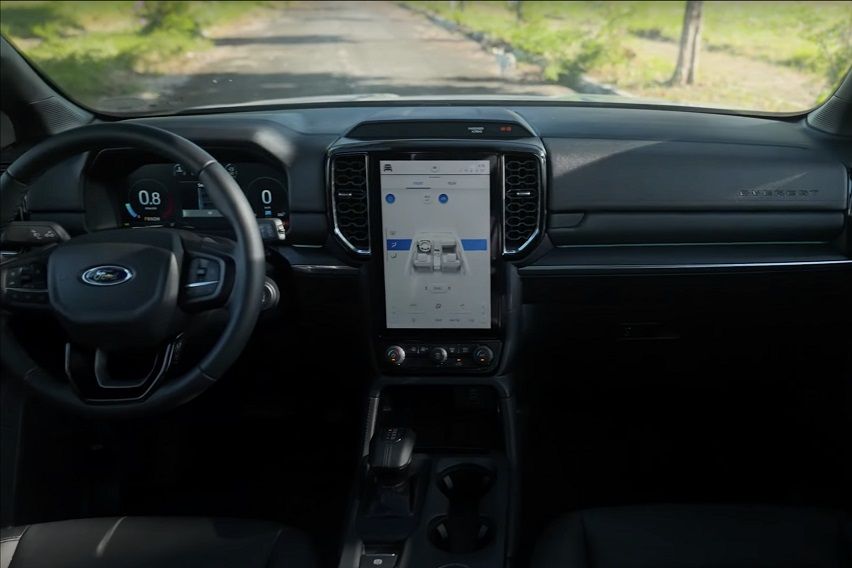
Its seats, multi-functional steering wheel, gear shifter, and door trims are all covered in plush leather material. It also gets a 12-inch digital instrument panel accompanied by a vertically-oriented 12-inch colored touchscreen infotainment system with wireless Apple CarPlay and wireless Android Auto.
Noteworthy features found inside the Ford Everest include its dual-zone A/C, ambient lights, wireless charging pad, eight-speaker sound system, panoramic sunroof, and french fries holder.
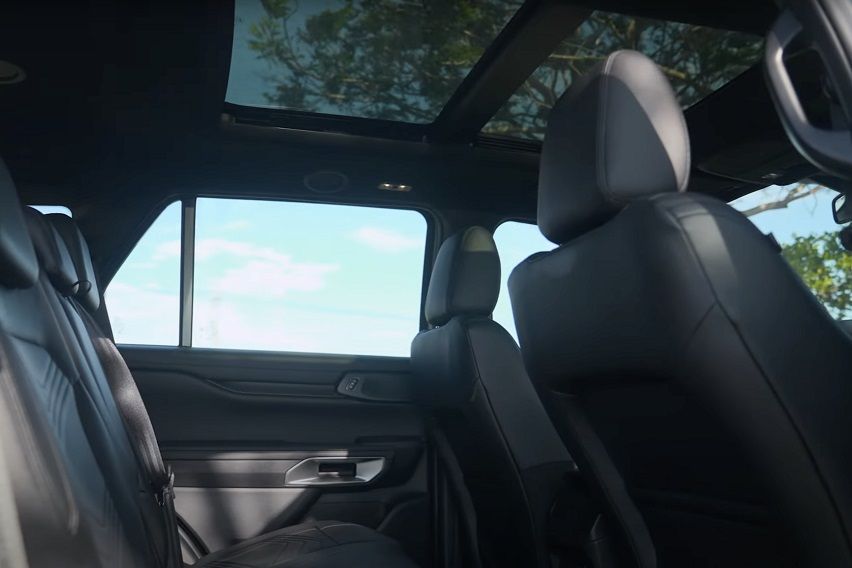
Like in the previous round the two SUVs have a tightly contested fight here. That said, this round is again a draw.
Engine
Powering the Hyundai Santa Fe is a 2.5-liter naturally aspirated gasoline engine mated to an eight-speed automatic transmission or a 2.5-liter turbocharged mill paired with an eight-speed dual-clutch transmission.
On paper, it makes as much as 191 to 277 horses with torque that ranges from 246 to 422 Newton-meters (N-m).
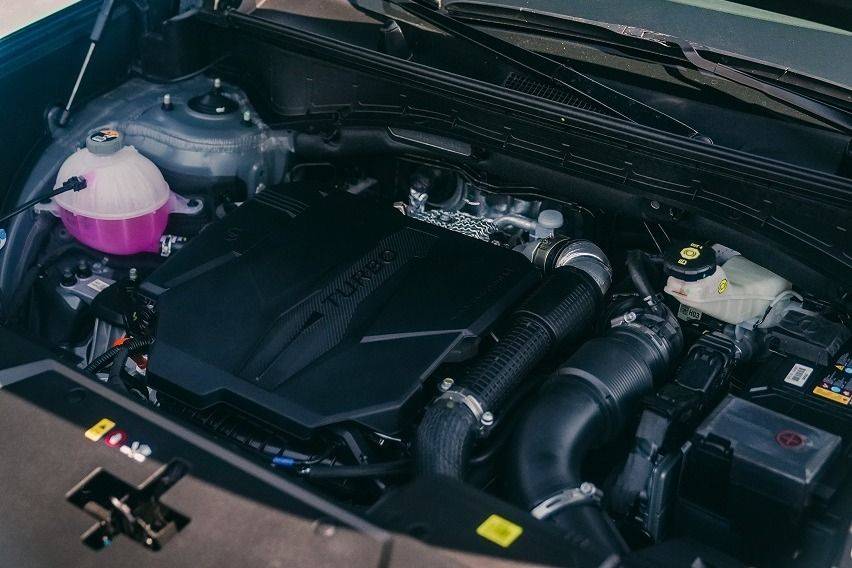
Ready to duke it out with the South Korean, the Ford Everest is fitted with either a 2.0-liter turbo diesel or a 2.0-liter bi-turbo diesel engine mated to either a six-speed or a 10-speed automatic slushbox.
Power figures range from 167 to 207 horsepower with 405 to 500Nm of pulling power.
For this round, the Hyundai Santa Fe displayed impressive power but the Ford Everest held its ground by showcasing more than adequate torque. With both of the SUVs not giving each other room, we will call this round a tie.
Safety
The Hyundai Santa Fe is equipped with safety features such as smart cruise control with stop-and-go, forward collision avoidance assist, lane following assist, lane keeping assist, a blind spot view monitor, and reverse parking with collision avoidance assist to name a few.
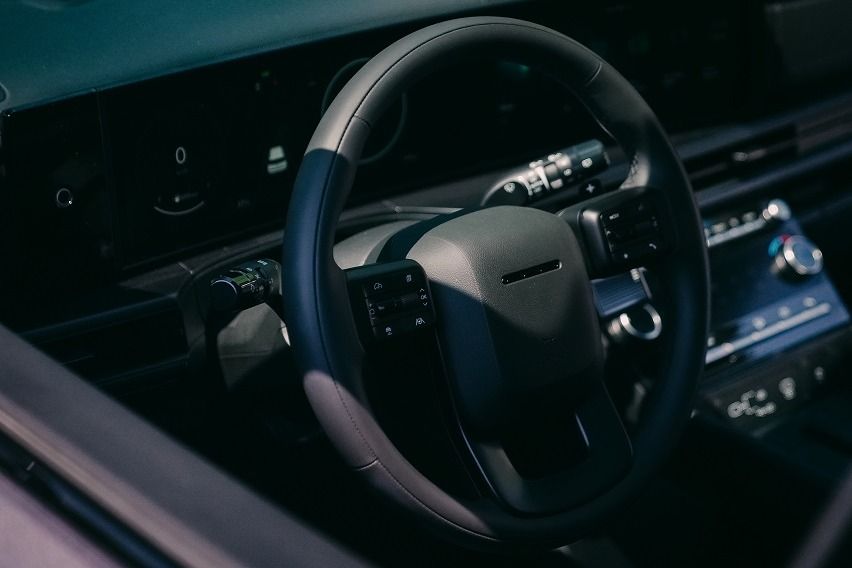
As for the Ford Everest, it gets safety technologies like adaptive cruise control with stop-and-go and lane centering, autonomous emergency braking with pedestrian detection, dynamic brake support, a forward collision warning system, post-impact braking, and blind spot detection with cross-traffic alert and braking, among others.
With equally-impressive lists of safety features, it’s not surprising that we reach again another tie.
Variants and pricing
- Hyundai Santa Fe 2.5 GLS 2WD: P2.410 million
- Hyundai Santa Fe 2.5 GLS AWD: P2.540 million
- Hyundai Santa Fe 2.5 Calligraphy AWD: P3.1 million
- Ford Everest Trend 4X2: P1.799 million
- Ford Everest Sport 4X2: P2.109 million
- Ford Everest Titanium+ 4X2: P2.209 million
- Ford Everest Titanium+ 4X4: P2.525 million
Verdict
Choosing between the Hyundai Santa Fe and the Ford Everest boils down to a matter of preference as both SUVs stand tall and offer equally impressive features on their own.
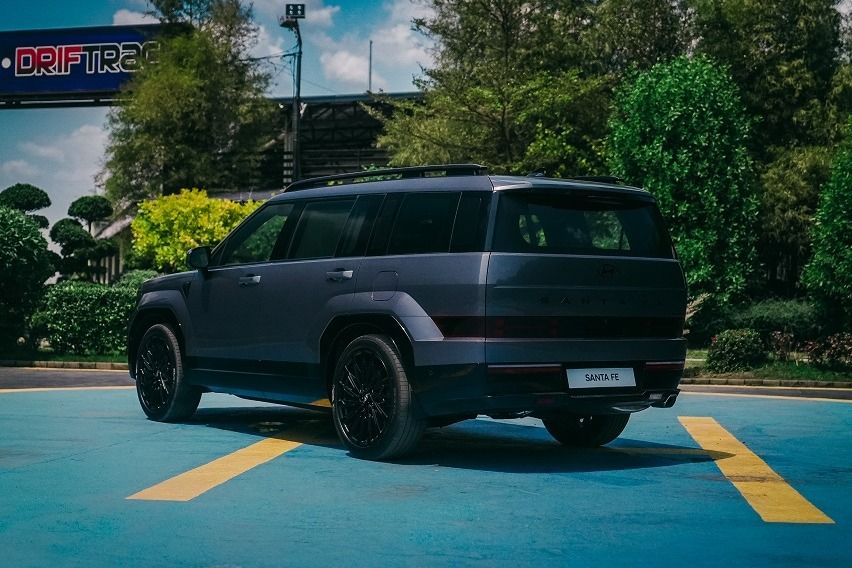
Both vehicles also impress with their comfort and convenience features while offering their would-be owners the capability to master almost any terrain.
Photos from Jirehl Kent Flores
Also read:
5th-gen Hyundai Santa Fe now available in PH
Turbocharging Thrills: How Ford's Bi-Turbo Diesel Engine Enhance 4x4 Adventures
Sell your car at the best price
 Verified and genuine buyers
Verified and genuine buyers
Hyundai Santa Fe vs Ford Everest Comparison
Hyundai Santa Fe Related Stories
- News
- Featured Stories
Hyundai Car Models
Don't Miss
Trending & Fresh Updates
- Latest
- Popular
You might also be interested in
- News
- Featured Stories
Hyundai Featured Cars
- Latest
- Upcoming
- Popular
Compare & Recommended
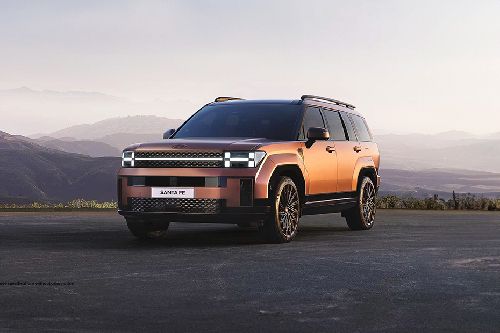
|
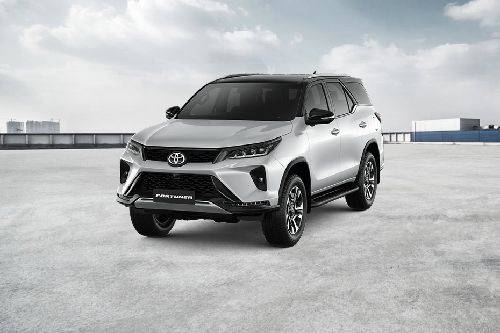
|

|
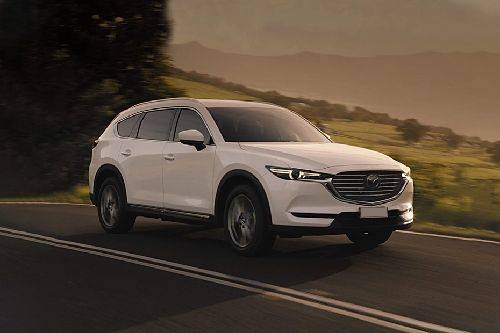
|
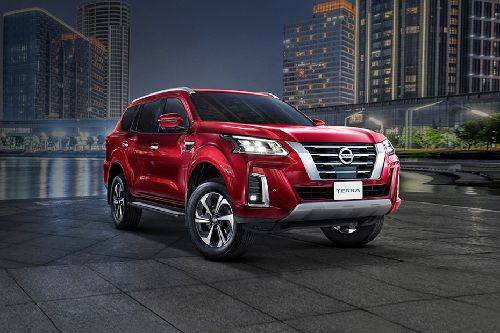
|
|
Seating
7
|
7
|
5
|
7
|
7
|
|
Fuel Type
Gasoline
|
Diesel
|
Gasoline
|
Gasoline
|
Diesel
|
|
Engine
2497
|
2393
|
1995
|
2488
|
2488
|
|
Power
191
|
148
|
154
|
187
|
187
|
|
Torque
246 Nm
|
400 Nm
|
196 Nm
|
252 Nm
|
450 Nm
|
|
Transmission Type
Automatic
|
Manual
|
CVT
|
Automatic
|
Automatic
|
|
|
Trending SUV
- Latest
- Upcoming
- Popular
Hyundai Santa Fe Car Articles From Carmudi
- journal
Compare
You can add 3 variants maximum*- Brand
- Model
- Variant



